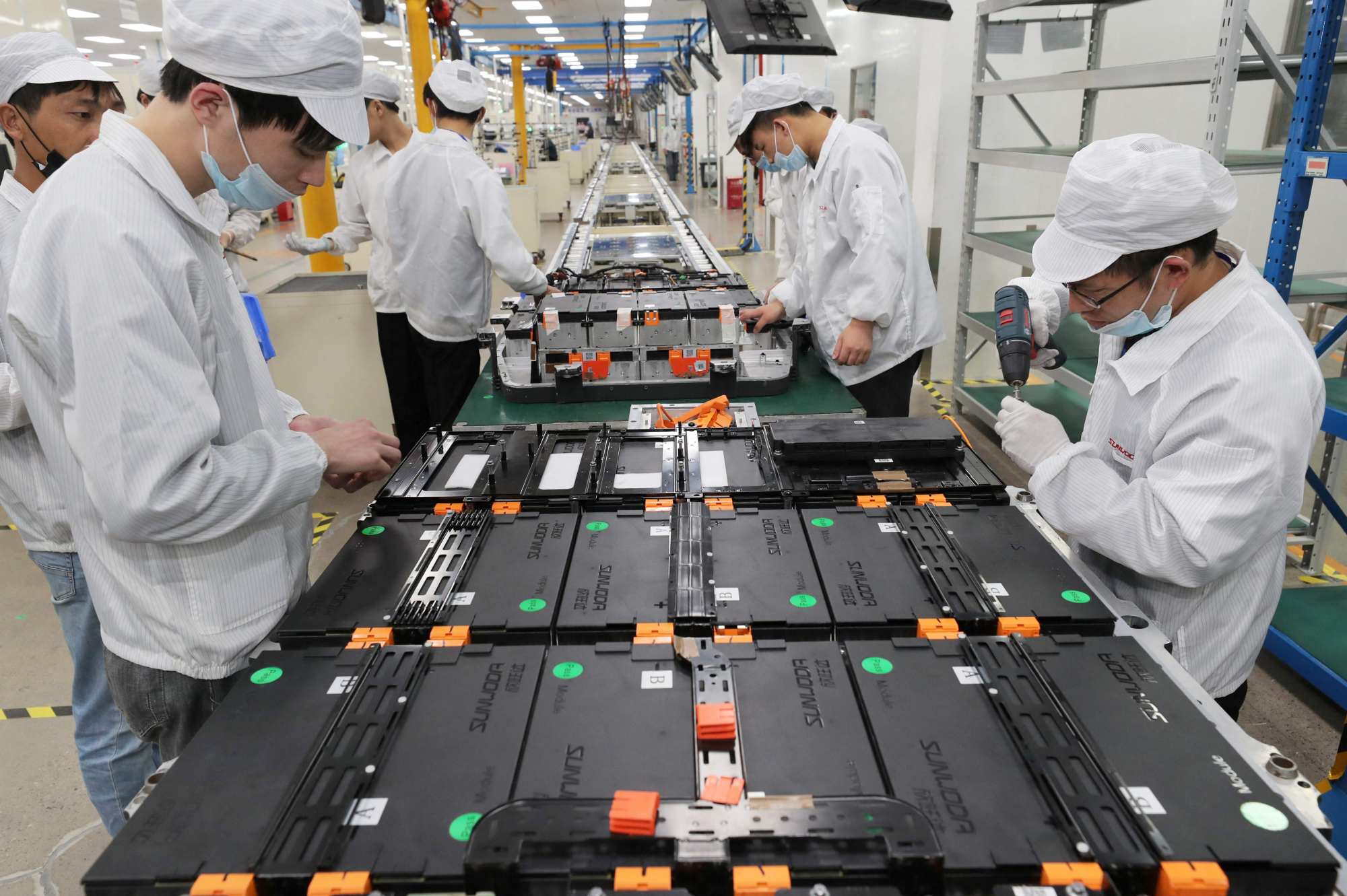
Shanghai Auto Show: Chinese and foreign carmakers to showcase latest models that could become the next bestseller
- Major Chinese and international carmakers will display prototypes and new EV models at the Shanghai Auto Show, which runs from April 19 to 28
- Geely, Volkswagen and Dongfeng are among conventional carmakers who plan to launch EV models to challenge market leader Tesla
The exhibition, which runs from April 19 to April 28, is likely to see major carmakers display either prototypes and new EV models to woo customers in the fast-growing market currently dominated by US carmaker Tesla.
Several powerful carmakers are now under the media glare amid expectations that their vehicles have the potential to redraw the mainland’s EV landscape.

Dongfeng Motor, the Chinese partner of Japan’s Nissan Motor and PSA Peugeot Citroen of France, said on Thursday it planned to launch its first premium intelligent electric car priced at less than 400,000 yuan (US$61,458) in July, entering the fray against Tesla’s Shanghai-made Model Y sport-utility vehicle.
Geely Auto’s Lynk brand will begin selling its Lynk Zero cars built on the Sustainable Experience Architecture, a brand new EV-specific modular platform in the second half of 2021. The Lynk Zero cars are expected to have driving ranges of more than 700km, but prices are yet to be announced.
Volkswagen aims to deliver its first batch of Chinese-made SUV ID.4 Crozz in March to mainland customers that start from 199,900 yuan with a driving range of at least 400km.
BYD, China’s largest electric carmaker and a battery producer, is set to launch the Qin Plus with the company’s self-developed blade battery, which it claims has high safety, improved range and lasts longer. The blade battery refers to a single-cell battery with dimensions of 96cm by 9 cm by 1.35cm and can be placed in an array and inserted into a battery pack like a blade.

The P7 smart EV developed by Chinese EV start-up Xpeng will release multiple updates to its XPILOT 3.0 advanced driver-assistance system and auto-parking function. The first carmaker to fit a lidar to a production model this year is dubbed as one of the three Chinese Tesla challengers – alongside NIO and Li Auto - because of their ascendancy in EV technology.
GAC, one of the mainland’s biggest state-owned carmaker, plans to launch the Aion Y compact SUV following the success of its predecessor Aion S, one of the mainland’s bestselling EVs last year.
“It is shaping up to be an exciting year as car buyers have high expectations of new products,” said Qian Kang, owner of a car components company in Zhejiang. “Big car assemblers have been preparing to enter the fray for a long time because they have realised that new-energy vehicles (NEVs) would be the major battleground in the coming decade.”
NEVs, comprising pure electric, plug-in hybrid and fuel cell cars, are likely to account for 20 per cent of new car sales on the mainland in 2025, or more than 4 million units, according to government estimates.
“We will see winners and losers in the EV war on the Chinese market this year,” said Gao Shen, an independent analyst in Shanghai. “Customers are the beneficiaries because they will have plenty of choices and may enjoy some discounts as competition heightens.”

